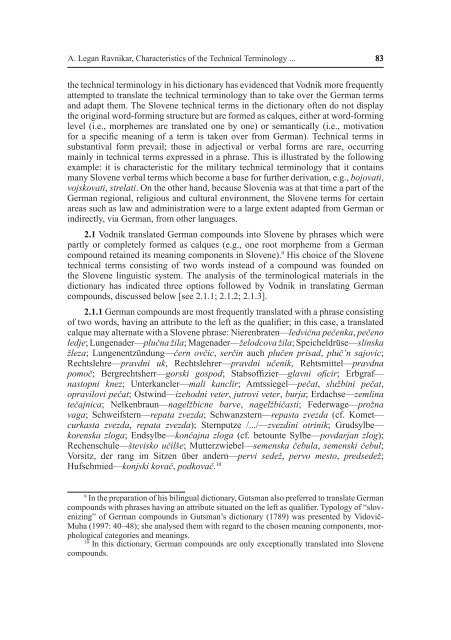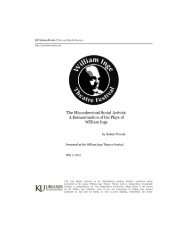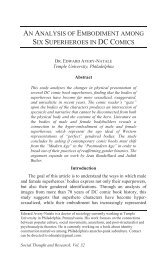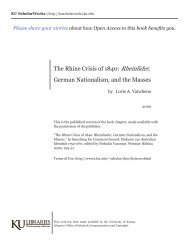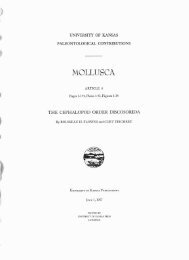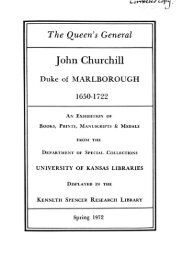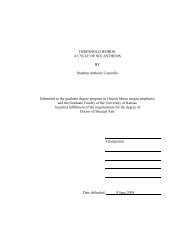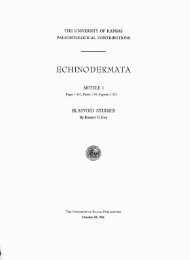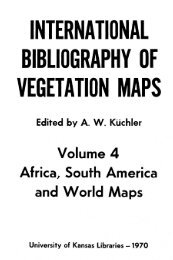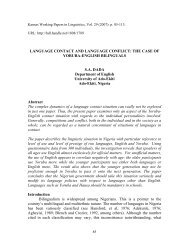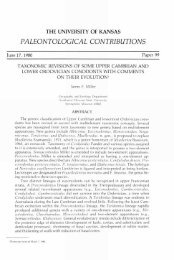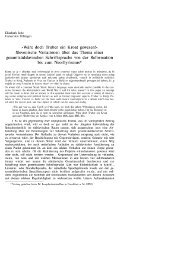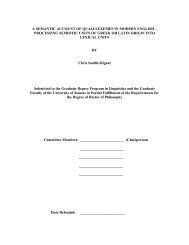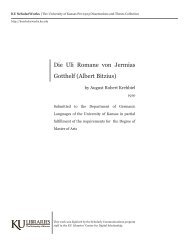Slovenski jezik Slovene Linguistic Studies - KU ScholarWorks
Slovenski jezik Slovene Linguistic Studies - KU ScholarWorks
Slovenski jezik Slovene Linguistic Studies - KU ScholarWorks
Create successful ePaper yourself
Turn your PDF publications into a flip-book with our unique Google optimized e-Paper software.
A. Legan Ravnikar, Characteristics of the Technical Terminology ... 83<br />
the technical terminology in his dictionary has evidenced that Vodnik more frequently<br />
attempted to translate the technical terminology than to take over the German terms<br />
and adapt them. The <strong>Slovene</strong> technical terms in the dictionary often do not display<br />
the original word-forming structure but are formed as calques, either at word-forming<br />
level (i.e., morphemes are translated one by one) or semantically (i.e., motivation<br />
for a specific meaning of a term is taken over from German). Technical terms in<br />
substantival form prevail; those in adjectival or verbal forms are rare, occurring<br />
mainly in technical terms expressed in a phrase. This is illustrated by the following<br />
example: it is characteristic for the military technical terminology that it contains<br />
many <strong>Slovene</strong> verbal terms which become a base for further derivation, e.g., bojovati,<br />
vojskovati, strelati. On the other hand, because Slovenia was at that time a part of the<br />
German regional, religious and cultural environment, the <strong>Slovene</strong> terms for certain<br />
areas such as law and administration were to a large extent adapted from German or<br />
indirectly, via German, from other languages.<br />
2.1 Vodnik translated German compounds into <strong>Slovene</strong> by phrases which were<br />
partly or completely formed as calques (e.g., one root morpheme from a German<br />
compound retained its meaning components in <strong>Slovene</strong>). 9 His choice of the <strong>Slovene</strong><br />
technical terms consisting of two words instead of a compound was founded on<br />
the <strong>Slovene</strong> linguistic system. The analysis of the terminological materials in the<br />
dictionary has indicated three options followed by Vodnik in translating German<br />
compounds, discussed below [see 2.1.1; 2.1.2; 2.1.3].<br />
2.1.1 German compounds are most frequently translated with a phrase consisting<br />
of two words, having an attribute to the left as the qualifier; in this case, a translated<br />
calque may alternate with a <strong>Slovene</strong> phrase: Nierenbraten—ledvična pečenka, pečeno<br />
ledje; Lungenader—plučna žila; Magenader—želodcova žila; Speicheldrüse—slinska<br />
žleza; Lungenentzündung—čern ovčic, serčin auch plučen prisad, pluč’n sajovic;<br />
Rechtslehre—pravdni uk, Rechtslehrer—pravdni učenik, Rehtsmittel—pravdna<br />
pomoč; Bergrechtsherr—gorski gospod; Stabsoffizier—glavni oficir; Erbgraf—<br />
nastopni knez; Unterkancler—mali kanclir; Amtssiegel—pečat, službini pečat,<br />
opravilovi pečat; Ostwind—izehodni veter, jutrovi veter, burja; Erdachse—zemlina<br />
tečajnica; Nelkenbraun—nagelžbicne barve, nagelžbičasti; Federwage—prožna<br />
vaga; Schweifstern—repata zvezda; Schwanzstern—repasta zvezda (cf. Komet—<br />
curkasta zvezda, repata zvezda); Sternputze /.../—zvezdini otrinik; Grudsylbe—<br />
korenska zloga; Endsylbe—končajna zloga (cf. betounte Sylbe—povdarjan zlog);<br />
Rechenschule—števisko učilše; Mutterzwiebel—semenska čebula, semenski čebul;<br />
Vorsitz, der rang im Sitzen über andern—pervi sedež, pervo mesto, predsedež;<br />
Hufschmied—konjski kovač, podkovač. 10<br />
9<br />
In the preparation of his bilingual dictionary, Gutsman also preferred to translate German<br />
compounds with phrases having an attribute situated on the left as qualifier. Typology of “slovenizing”<br />
of German compounds in Gutsman’s dictionary (1789) was presented by Vidovič-<br />
Muha (1997: 40–48); she analysed them with regard to the chosen meaning components, morphological<br />
categories and meanings.<br />
10<br />
In this dictionary, German compounds are only exceptionally translated into <strong>Slovene</strong><br />
compounds.


